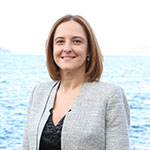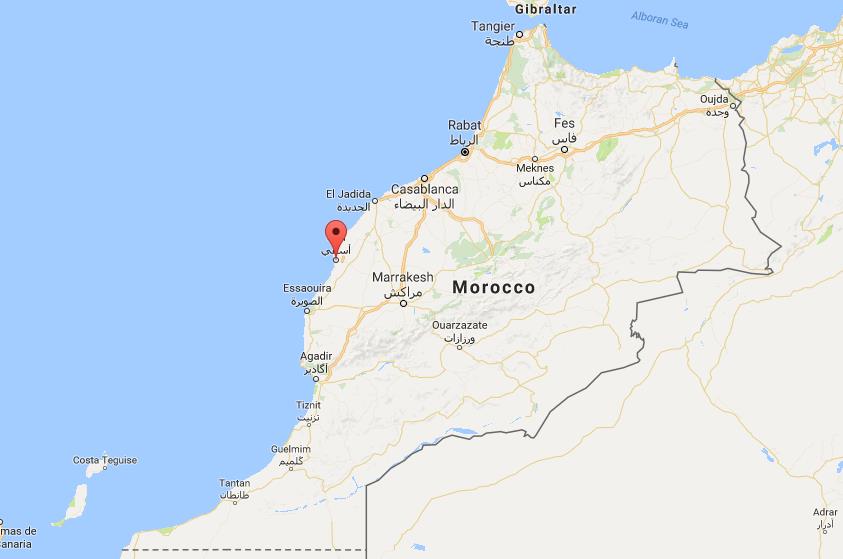
Market Research in Morocco
To understand the Moroccan market, we offer three approaches: Market research, market visit, and opportunity screening.
Market Research is an important tool to understand the specific conditions in Morocco, like market size, competition, and local trends. But, doing market research in emerging markets has its unique challenges. The availability of reliable information sources is limited. Besides, doing primary research can be much more complicated than it is in a developed market, because of personal relationships or other unique local factors can play an important role to reach subject matter experts.
For more than 20 years, we help our clients to understand emerging markets by conducting market research projects. We believe that with our experience, we have a good understanding of local challenges and can distinguish between reliable and misleading information.
Morocco is a big market with 36 million people, 64% being under the age of 34. The country can be preferred as a production and export center for various industries such as electrical machinery and motor vehicles, or as an alternative market to sell such products. Before deciding on the market entry strategy or local investments, market research can provide significant insight.
If you would like to have an easy-to-read and clear-cut formatted report which is prepared according to your questions about the Moroccan market, we are the right partner for you.
We offer market research in Turkey, UAE, Tunisia and Morocco.

Get in touch with us

Advantages of conducting a Market Analysis in Morocco with FMC Group
We offer
- more than 20 years of market analysis experience in emerging markets. We have delivered hundreds of projects in 20+ different industries
- relevant insight. No matter how niche your sector is, we look at the market through the eyes of our clients, talk to the right people and understand how to filter the relevant data
- a tailor-made research scope, from answering a few questions up to a fully comprehensive market analysis with board presentations
- a flexible approach and can integrate our clients into the project steering, enabling them to adjust the research focus according to upcoming findings dynamically
a highly developed methodology to research the markets
FMC Group’s Market Research Methodology and Tools for Morocco
We have proven methodology and tools which we can easily customize to your research needs.
Each research project can be a unique combination of:
- Desk research
- Phone interviews
- Face-to-face in-depth interviews
- Online surveys
- Site visits
- Focus Groups
Typical Scope for Market Research in Morocco
- Market size
- Market structure
- Sales & distribution channels in Morocco
- Key players (competition, customers and other stakeholders)
- Market shares
- Trends & developments in Morocco
- Forecasts
- Cost structure
- Location analysis
- SWOT analysis
We can also provide more insight by a detailed competition analysis & benchmarking
Our additional services to understand the Moroccan market:
Market visit in Morocco
This service is often used as an alternative solution for a lower budget. Our clients are using it also in addition to a market research to discuss with stake holders face-to-face in Morocco.
We accompany such visits in Morocco and give intercultural support in addition. Such visits are fully organized, starting from a pick-up at the airport to the travel organization with all visits, which is very helpful.
If personally traveling to Morocco is not an option, we can organize online meetings as well.
Opportunity screening in Morocco
Opportunity screening is a very pragmatic approach to understand the full potential of the Moroccan market. Usually, we conduct a representative number of interviews with potential customers in Morocco to understand the full potential. The results are often used by our clients to contact the created leads.
Information about the Moroccan Market
QUICK FACTS ABOUT MOROCCO
- Official name: Morocco (Kingdom of Morocco)
- Capital: Rabat
- Government type: Parliamentary constitutional monarchy
- Head of state: King Mohammed VI (since 30 July 1999)
- Head of government: Prime Minister Saad-Eddine al-Othmani (since 17 March 2017)
- Landmass: 446,300 km²
- Sea and water: 250 km²
- Currency: Moroccan dirhams (MAD)
- Major urban areas: Casablanca (3.8 million), RABAT (1.9 million), Fes (1.2 million), Tangier (1.2 million), Marrakech (1.0 million), Agadir (924,000) (2020 est.)
- Languages: Arabic (official), Berber languages (Tamazight (official), Tachelhit, Tarifit), French (often the language of business, government, and diplomacy)
- Time zone: UTC 0
- Telephone code: +212
- Climate: Mediterranean, becoming more extreme in the interior
- National holidays: Throne Day (accession of King MOHAMMED VI to the throne), 30 July (1999)
THE STRATEGIC LOCATION OF MOROCCO
- Neighboring countries: Algeria 1,900 km, Western Sahara 444 km, Spain (Ceuta) 8 km, Spain (Melilla) 10.5 km (Note: an additional 75-meter border segment exists between Morocco and the Spanish exclave of Penon de Velez de la Gomera)
- Coastline: 1,835 km
- Strategic location: Along Strait of Gibraltar; the only African nation to have both Atlantic and Mediterranean coastlines

POPULATION IN MOROCCO
- Population: 35.6 million (July 2020 est.)
- Life expectancy: 72 years (men), 75 years (women) (2020 est.)
- Population density: 79.7/km² (2020 est.)
- Population growth rate: 0.96% (2020 est.)
- Population distribution: The highest population density is found along the Atlantic, and Mediterranean coasts; several densely populated agglomerations are found scattered through the Atlas Mountains
THE MOROCCAN ECONOMY
- GDP in current prices: USD 119.0 bn (2019 est.)
- GDP growth: 2.7% (2019 est.)
- GDP per capita: USD 3,345 (2019 est.)
- Unemployment: 9.2% (2019 est.)
- Inflation: 0.7% (2019 est.)
FOREIGN TRADE IN MOROCCO
- Total exports: USD 29.3 bn (2019)
- Total imports: USD 51.1 bn (2019)
- Trade balance: USD -21.8 bn (2019)
- Main export products: Electrical machinery, motor vehicles, fertilizers (including phosphates), apparel and clothing accessories, chemicals, vegetables and fruits, seafood
- Main import products: Mineral fuels and oil, machinery, motor vehicles, electrical machinery, plastics, aircraft and parts thereof, cereals, iron and steel
FOREIGN DIRECT INVESTMENT IN MOROCCO
According to the 2020 Global Investment Report published by UNCTAD, Morocco is the 8th largest FDI recipient in Africa.
- FDI: USD 1.6 bn (2019)
- FDI stock: USD 66.5 bn (2019)
COMMUNICATION IN MOROCCO
- Total telephone subscriptions (fixed lines): 2,199,140 (2018 est.)
- Total mobile line subscriptions: 44,737,885 (2018 est.)
- Internet country code: .ma
- Broadband – fixed subscriptions: 1,552,599 (July 2018 est.)
TRANSPORTATION IN MOROCCO
- Number of airports: 55
- Number of registered air carriers: 4
- Total railways: 2,109 km of which 61 are electrified, and 200 km of High-Speed Lines (LGV)
- Major seaports: Port activity is concentrated in the Tanger Med port hub (38%), followed by the port of Jorf Lasfar (23%) and the port of Casablanca (21%)
GLOBAL PARTICIPATIONS OF MOROCCO
ABEDA, AfDB, AFESD, AMF, AMU, CAEU, CD, EBRD, FAO, G-11, G-77, IAEA, IBRD, ICAO, ICC (national committees), ICRM, IDA, IDB, IFAD, IFC, IFRCS, IHO, ILO, IMF, IMO, IMSO, Interpol, IOC, IOM, IPU, ISO, ITSO, ITU, ITUC (NGOs), LAS, MIGA, MONUSCO, NAM, OAS (observer), OIC, OIF, OPCW, OSCE (partner), Pacific Alliance (observer), Paris Club (associate), PCA, SICA (observer), UN, UNCTAD, UNESCO, UNHCR, UNIDO, UNOCI, UNSC (temporary), UNWTO, UPU, WCO, WHO, WIPO, WMO, WTO
Disclaimer: Although we carefully researched and compiled the above information, we do not give any guarantee with respect to the actuality, correctness, and completeness.

